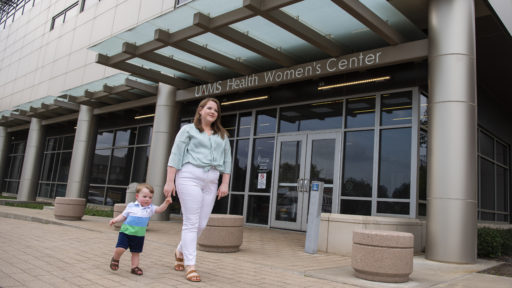Description
On the surface, the choice between formula and breastfeeding may seem like a coin toss, but one of these options provides a multitude of benefits for both the mom and the baby that can’t be overstated.
The fact of the matter is, the benefits of breastfeeding go way beyond providing your little one with nutrition. Dr. Misty Virmani explains the benefits for both mother and baby.
Video Player
Transcript
The reasons I encourage you to breastfeed is because it’s beneficial to both your health and to your baby’s health. It also creates a bond that you’re not going to be able to recreate in really any other way.
But specifically speaking to your baby’s health, it helps decrease the risk that your child might die in the first year of life, up to 20% decreased risk of death, even in developed countries like the United States. That’s partly because it reduces the risk of sudden infant death. It reduces the risk of things like leukemia and lymphoma. Those are diseases that we can’t change the risk factors for in any other way. But breastfeeding actually can decrease the risk of your child getting leukemia by about 15% and lymphoma up to almost 20%.
It’s part of the immune mediation, so that means it modifies how the immune system functions.
So when you’re exposed to formula, the bovine proteins and the lack of other antigen exposure through formula modifies how the immune system works and creates more of an inflammatory or pro-inflammatory environment in the gut and then later in the immune system and in how the body functions overall.
When you’re exposed to breast milk, you don’t have bovine protein exposure. You have an anti-inflammatory environment that helps protect the gut from some of these early antigenic exposures, develops a helpful, not a harmful response to some of these antigens and helps develop the immune system. And if you think about what the primary source of immune stimulation in an infant or even in us is, it’s through the gut. A lot of your lymphatic tissue is all in the gut. So your largest kind of — simply speaking — immune organ is your intestines, and that’s where your breast milk exposure occurs.





